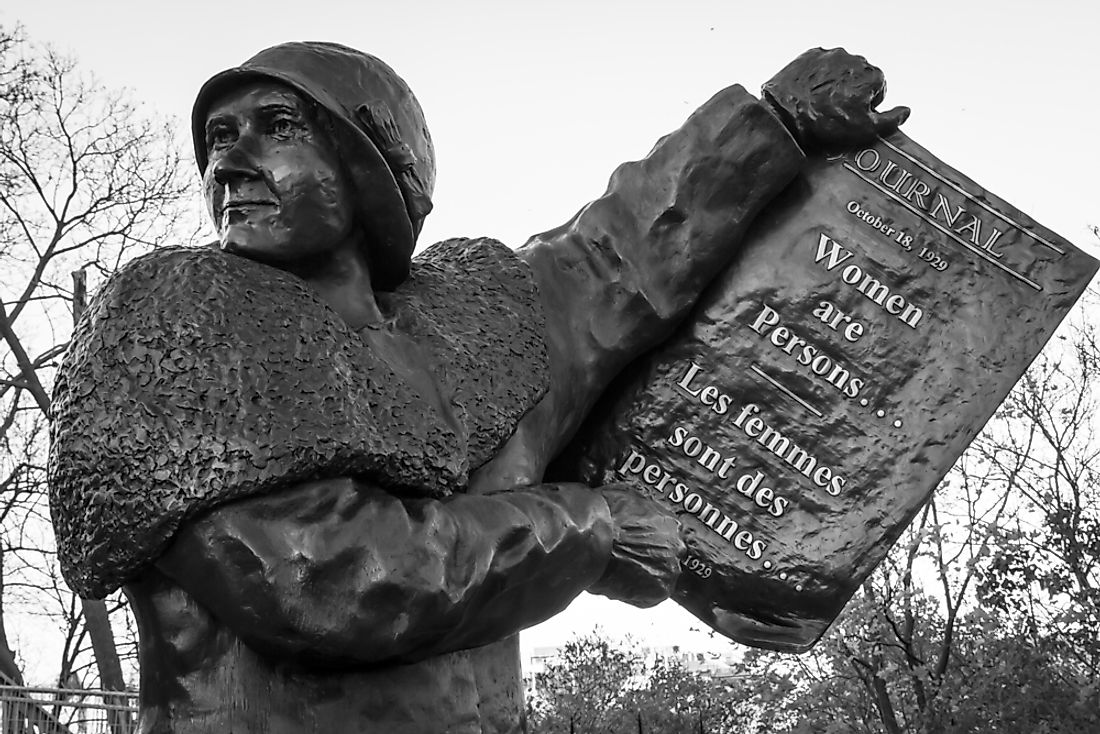Who was Nellie McClung?

Who Was Nellie McClung?
Nellie McClung was a Canadian feminist, author, social activist, and politician. She formed "The Famous Five" with four other women in 1927 to advocate for women's recognition as qualified persons. She also participated in social and moral reform during the early 1900s.
Early Life and Childhood
Nellie McClung was born on October 20, 1873, as Nellie Letitia Mooney in Chatsworth, Ontario. She was the last born in a family of six children who were raised by their parents John Mooney and Letitia McCurdy. Raised by a Methodist father and a Scottish-born Presbyterian mother, her entire family valued Christian virtues, among them hard work, education, and discipline. Nellie's family moved and settled in a homestead in Manitoba in 1880 where she later become a women's rights activist, legislator, author and lecturer.
Adult Life and Career
In 1889, she began her teaching career at Hazel school near Manito, Manitoba where she joined emerging moral and social reform movements. At the course of her work, she met social reformer Annie McClung with whom she found affection and profound respect. Her life blossomed when she acquired a Scholarship to Isbister and acquired a first-class certificate in 1894 at the Winnipeg Collegiate Institute. In 1895, she went home to live with her mother, who was then a widow. Later in 1896, Nellie married Annie's son, Robert Wesley (a pharmacist), and together they had four sons and a daughter. In 1902, Annie McClung convinced Nellie to participate in a short-story competition for a leading American family magazine, Collier's. She did not win the competition, but her script became the first chapter of her best-selling novel Sowing Seeds in Danny which was published in 1908.
Political Life and Activism
In 1912, she founded the Political Equality League (PEL) with the support of other educated activists including Lillian Thomas, Dr. Amelia Yeoman, Francis Marion, Hind and Winona Margaret Dixon. She later published In Times Like These, a well-known volume in 1915. It assembled all wartime utterances, PEL quotations, feminists, and temperance speculations. As a legislator, she advocated for the enforcement of liquor control laws in her province. The province then repealed prohibition and endorsed government sale in 1923. She later went to Calgary, where her husband had been given a job transfer. She vied a provincial office seat in 1926 but she unfortunately lost.
The Famous Five
Nellie was among the "Famous Five" Canadian women who were against claims that women were not eligible for appointment as judges and senators. Those who supported the idea of keeping women from being appointed to these positions claimed women were not recognized as "persons." Official recognition of women as "persons" under the law began on October 18, 1929.
Later Years
Wesley, Nellie's husband, received another job transfer in 1932 and they moved to Victoria. He later retired in 1933, and Nellie remained active and vigilant. She was nominated as one of the Canadian delegates to represent the country in the League of Nations in 1938. She addressed social issues, focusing on women and children, and published her last book, The Stream Runs Fast, in 1945. She died on September 1, 1951, in Victoria, British Columbia.







